home » Mexico
Articles about "Mexico"
Temáticas
Vol 8 No 15 (2025)
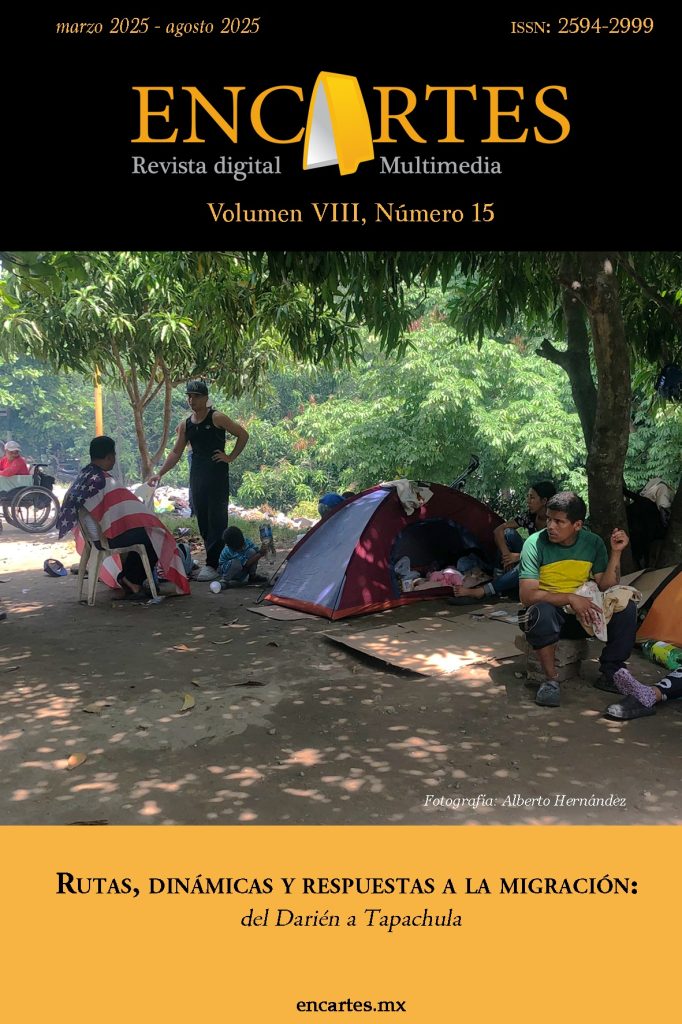
Routes, dynamics and responses to migration: from the Darien to Tapachula
- Alberto Hernandez Hernandez
- Carlos S. Ibarra
Las movilidades y las migraciones son fenómenos inherentes a la historia de la humanidad, pero en el contexto contemporáneo se presentan con una complejidad y diversidad de dimensiones que suelen desafiar las capacidades analíticas de las ciencias sociales. Este dosier tiene como objetivo principal contribuir al análisis crítico de las rutas, experiencias y redes que configuran la movilidad migratoria en la región.
Realidades socioculturales
Vol 7 No 14 (2024)
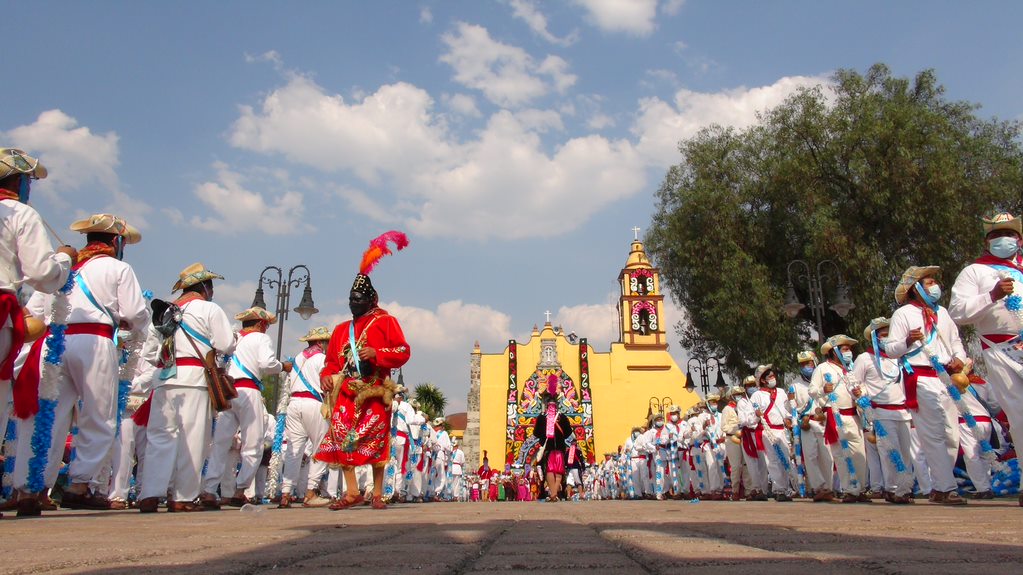
Dancing for the saints in the time of covid-19: responses to the 2020 confinement in central Mexico.
- David Robichaux
- Jorge Martínez Galván
- Manuel Moreno Carvallo
Durante las fiestas religiosas en las regiones de Teotihuacán y Texcoco, al noreste de la Ciudad de México, la gente “baila para el santo”, a menudo para cumplir una promesa hecha en una súplica de curación o en agradecimiento por un favor recibido. Con base en el trabajo de campo realizado entre 2011 y 2019, y en entrevistas en línea y el seguimiento de las publicaciones en Facebook en 2020 y principios de 2021, en este artículo exploramos el impacto del coronavirus en las danzas devocionales ejecutadas en el contexto de las fiestas religiosas. En particular, examinamos los casos de nuevas prácticas adoptadas durante el confinamiento. A partir del concepto de Jeremy Stolow (2005) de “las religiones como medios” mostramos cómo una combinación de medios digitales y presenciales hizo posible que las comunidades católicas locales mantuvieran la relación caracterizada por el principio de do ut des con su santo patrón durante la pandemia, “aunque de forma diferente”. Concluimos planteando varias preguntas relativas al futuro de las danzas devocionales y de las fiestas religiosas en estas regiones, al iniciar el segundo año de las restricciones para mitigar los efectos del covid-19.
Realidades socioculturales
Vol 7 No 13 (2024)
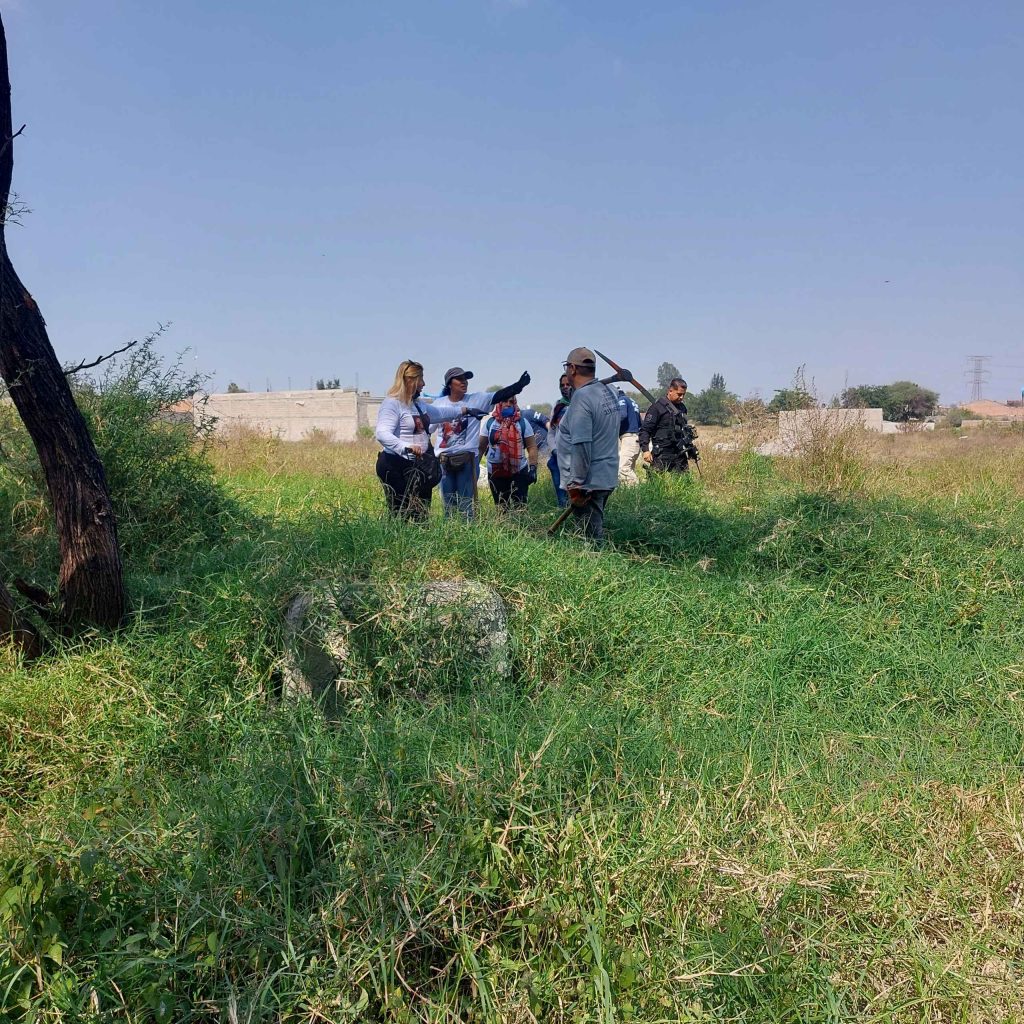
The search. Following metaphorical traces in an urban margin.
- Isaac vargas
Former Mexican President Felipe Calderón launched the war on drugs in 2006 as a strategy to dismantle vast drug trafficking networks. That war has cost the lives of thousands of people, many of whom are buried in mass graves. By focusing on a single day in the search for bodies, this ethnography describes and analyzes one of the brutal aftereffects of this security strategy. One key topic is the different ways in which actors stake out the rights of the lifeless bodies in these graves, from the mothers who dig into the earth to find treasures to the state apparatus that attempts to control the process.
Entrevistas
Vol 7 No 13 (2024)
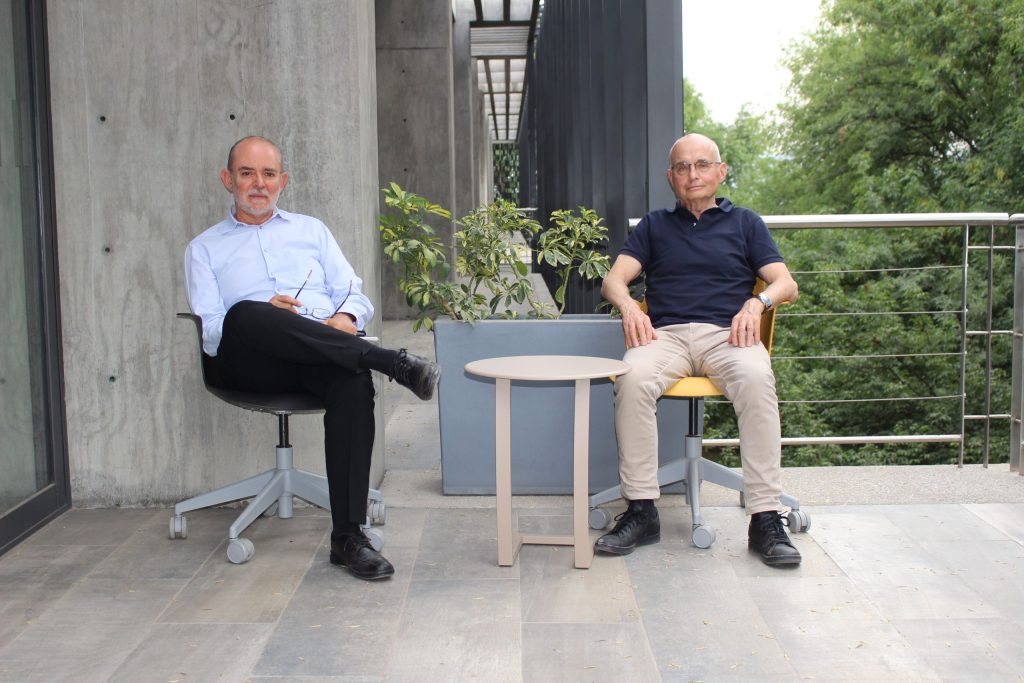
The horizons of universality: Serge Gruzinski's research and perspective.
Interview with
- Arturo Reynoso
- Serge Gruzinski
What benefits, in the end, has globalization offered to one part of the world as well as another? What are the risks of the interaction of diverse societies? How can we understand over time the different "colonizations" in history, not only that of the New World, but also those that had already occurred in other parts of the planet? Complete interview with one of the most outstanding experts on the process of globalization and the history of Mexico.
Realidades socioculturales
Vol 6 No 12 (2023)
Normalizing the Revolution: Teachers and Students in Guerrero’s Universidad Pueblo
- Ana Lilia Nieto
- Rafael Alarcón Medina
Keywords: common space of experience, Guerrero, Mexico, normalistas, Universidad Pueblo.
This work analyzes the political-educational project of the Universidad Pueblo in Guerrero state during the 1970s. Using the ideas of Walter Benjamin and Reinhart Koselleck, we argue that this project can be understood as a common space of experience articulated through political ideas, educational practices, and student movements in the recollections of professors and students. We suggest that the diverse layers of historical experience of teacher-training professors is a catalyst sparking off today, giving origin to one of the most contradictory and interesting practices in popular higher education in Mexico in the 20th century. This research is supported by in-depth interviews in 2018 and 2019 in Acapulco and Chilpancingo in Guerrero state.
Realidades socioculturales
Vol 6 No 11 (2023)

"They are spraying the coronavirus". Of conspiracy rumors in social networks and their political uses in Mexico.
- Aldo Cicardi Gonzalez
- Margarita Zires
In this article we examine a rumor that claimed that governmental sanitization measures against the coronavirus are actually strategies to infect the population and eliminate it. This rumor circulated in various regions of Mexico, generating multiple community protests. This study separates itself from an approach that condemns rumor and conspiracy theories for being false, and takes into account that these phenomena help provide an understanding of what is considered plausible or not in a certain context. We present the versions that circulated in San Antonio de la Cal, Oaxaca, as well as narrative elements that confer plausibility and implausibility. The study is based primarily on an analysis of conversations generated on Facebook and personal interviews. It shows that the rumor was connected to conspiracy narratives and local accounts that discussed a lack of confidence in the authorities. Furthermore, its political use by groups opposing the authorities is examined.
EncArtes multimedia
Vol 5 No 10 (2022)
Altars for the Dead: The Changing Heritage of a Mexican Tradition
Discrepancias
Vol 4 No 8 (2021)
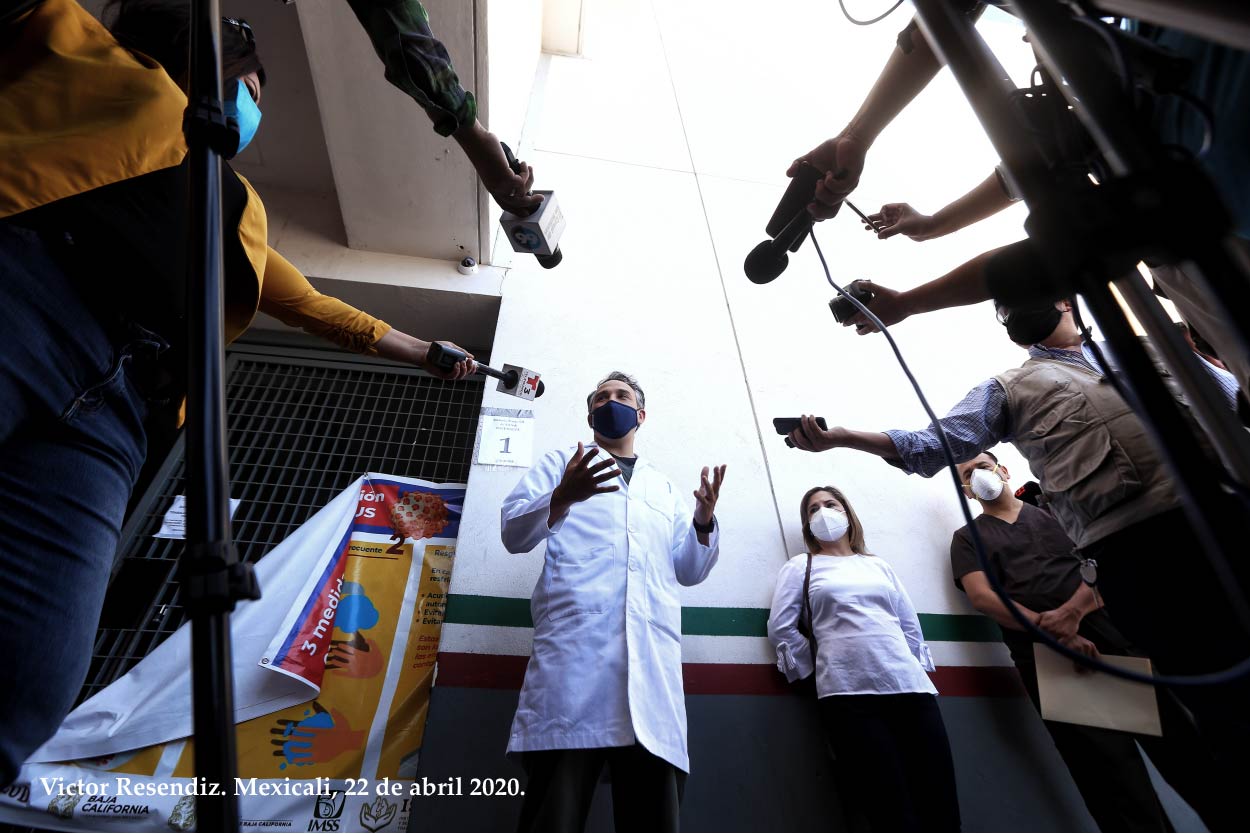
Pandemic, Year 2. Different Experiences, Shared Dilemmas and Multiple Reflections from Medical Anthropology Around Covid 19
- Mark Nichter
- Rosa Maria Osorio
- Sahra Gibbon
- moderator Lina Rosa Berrio
- moderator Paola Maria Sesia
We have invited three specialists from the field of medical anthropology to reflect on their respective experiences and knowledge of Mexico, Great Britain, the United States and India, all of them countries deeply affected by the pandemic, even if in very different ways, and whose management of the pandemic has been oriented in different directions. This allows us to contrast the diversity of official responses to the health and economic crisis.
Temáticas
Vol 4 No 8 (2021)

Construction of Romantic Love, Ideals of Couples and Gender Relations from the Lyrics of Norteña Music and Banda Sinaloense
- Ana Isabel Sánchez Osuna
- César Jesús Burgos Dávila
- Mariangel Estefania Urrecha Arce
Popular music constructs cultural narratives about romantic love, makes visible meanings of being a man and a woman, and practices related to gender violence. In this article we analyze the construction of romantic love as well as couple ideals in the lyrics of Sinaloa norteña and banda music. We conducted a thematic content analysis of 29 romantic ballads. We present the results in the categories of couple search, daily coexistence, eroticism, and separation from the couple. We conclude that myths and beliefs about romantic love are disseminated in the lyrics of the songs. These meanings recreate roles and interactions established by gender mandates, and crystallize conditions of violence and inequality between men and women.
Coloquios interdisciplinarios
Vol 3 Num 6 (2020)
Commentary to the colloquium "The Evangelical People: Hegemonic Construction, Minority Disputes and Conservative Reaction" by - Joanildo Burity
― Go to main text
Populism and religion in Brazil and Mexico. A brief reflection
- Alberto Javier Olvera Rivera
Keywords: Brazil, Mexico, Pentecostalism, populism, people.
Se analyze the relationship between populism, religion and politics, both on a theoretical level and in the cases of Brazil and Mexico. It begins with a critique of Joanildo Burity's article on "the Pentecostal people" in Brazil and the relevance of using Laclau's theory of populism to explain this phenomenon. The same arguments are then used to analyze, as a contrast, contemporary Mexican populism, embodied in President Andrés Manuel López Obrador, highlighting its religious background.






